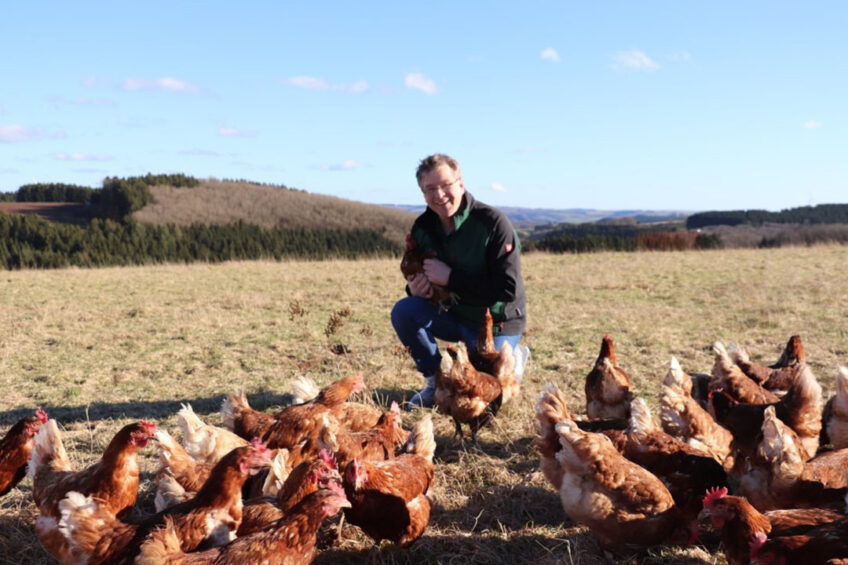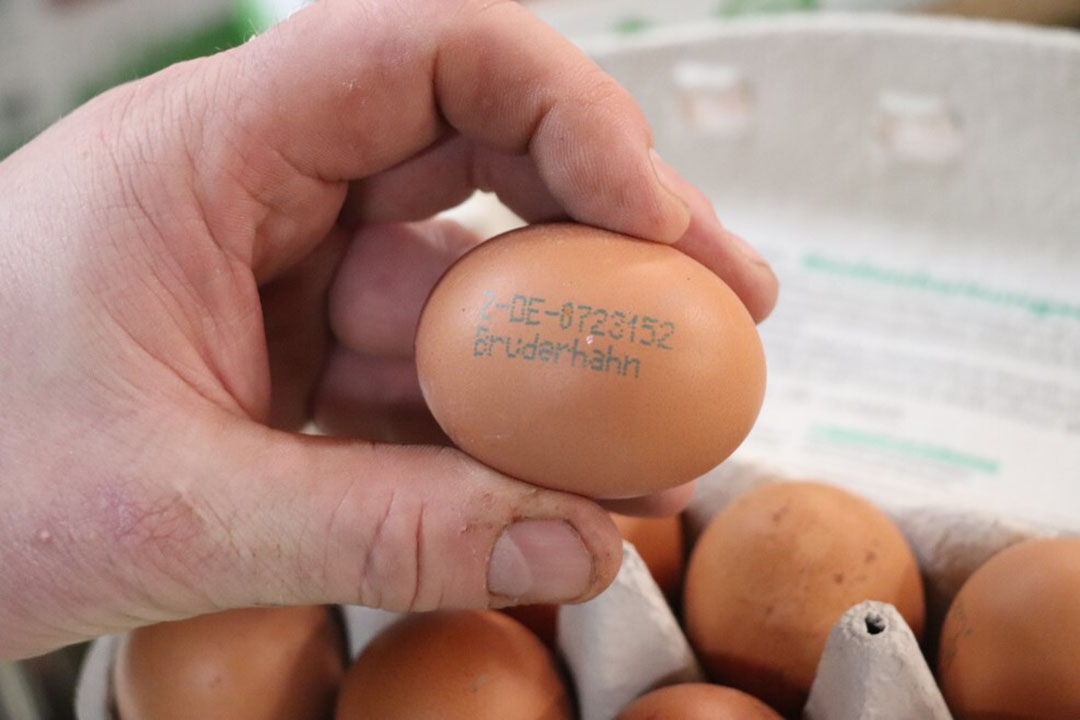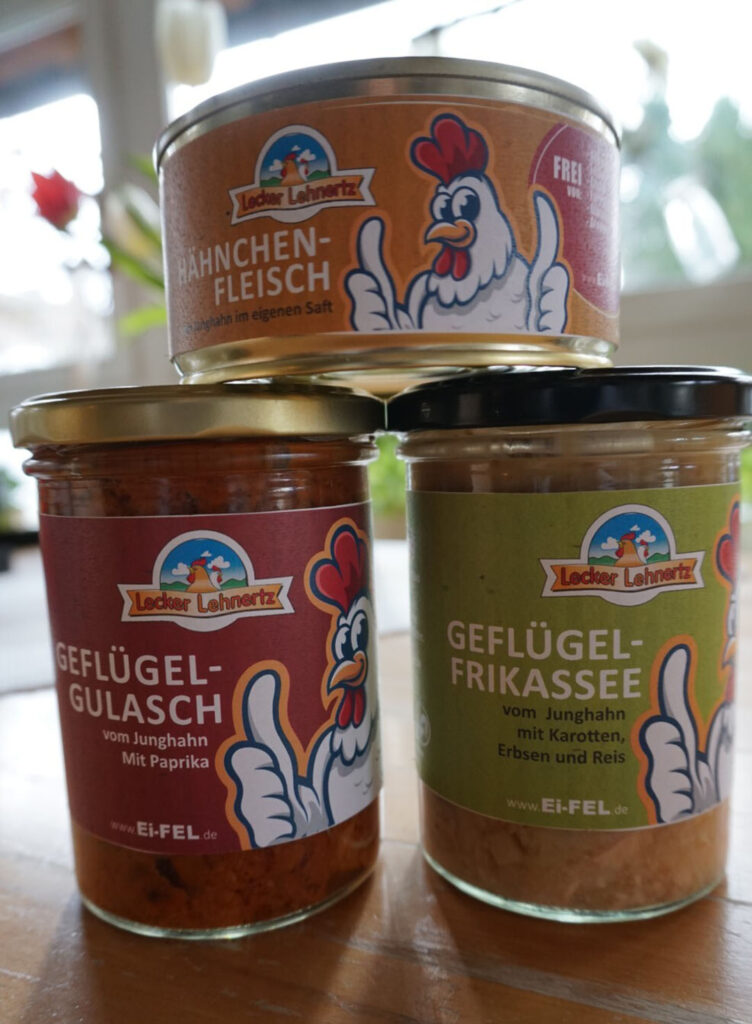OKT certification mandatory for table eggs

Since 1 January 2022, all table eggs sold in Germany have to be OKT certified. Egg producers locally or abroad are obliged not to cull male layers siblings (’Ohne Küken Töten’) for the number of layers used to supply the table egg market, either by raising them for meat production or use in-ovo sexing in an early stage of incubation.
A few years ago, German egg traders started pushing their layer farmers to ask their pullet suppliers for laying hens whose male siblings weren’t disposed of by gassing or shredding. The reasoning behind this was a growing awareness and criticism in politics and society that approximately 42 million male layer siblings were destroyed per year shortly after hatch.
Preventing sacrificing hatchlings, in German ’Ohne Küken Töten’ would mean a lot for the farmers’ licence to produce going forward. Poultry farm Lehnertz in the German Eifel region seized the momentum and started OKT certification for its organic laying hens in the summer of 2019.
Possible alternatives
With the industry’s move towards OKT, livestock research in Germany focused on alternatives to sacrificing day-old male chicks, also called ‘brother roosters’ in Germany. It found 3 possible routes to OKT, namely, sex determination in the egg, raising the standard male hatchlings for meat, or breeding double-purpose birds. All qualify for certification.
Lambert Lehnertz: “Until 2022, producers had the choice to go OKT or not, but with 42 million unnecessary hatchlings being culled making headlines, a final ban was imposed. Initially, our minister of agriculture wanted to arrange it in the EU context. Ultimately, the last CDU minister of agriculture, Julia Klöckner, decided to go forward unilaterally.”
As of 2022, layer farmers producing for the German table egg market are legally required to be OKT certified.
Ahead of the pack
In 2016, Lehnertz founded the Eifel Ei cooperative. This cooperative now consists of 10 farms. Lehnertz: “They supply us with the eggs, so that we can supply all affiliated supermarkets.”
The Eifel Ei cooperative decided in the summer of 2019 to get OKT certified with its organic laying hens under the name ‘Eifel Brother Rooster Initiative’.
“Both from a marketing and an ideological perspective, we started raising male layer siblings sooner than prescribed by law. We wanted to know what it would mean financially for us as a company and gain expertise, so we did not wait until the legislation forced us,” said Lehnertz.
The Eifel Ei cooperative chose to have the organic male hatchlings raised in neighbouring Austria, which makes more sense economically. The hatching eggs are all hatched in Austria at Die Eiermacher hatchery where the male pullets remain in Austria and the young laying hens go to Lehnertz in Germany. The male chicks are raised in Austria in accordance with Austrian organic/eco legislation.
Lehnertz: “The advantage of our organic label is that the meat can be sold at a higher price. That is necessary because they are not standard broilers with a good feed conversion, of course.”
The sale of organic roosters in Austria is no problem, according to the German poultry farmer.
All table eggs from the Eifel Ei cooperative go to German supermarkets, about 200 in total. The eggs of Lehnertz clearly show that all the brother siblings have been spared. ‘Brother rooster’ is stamped on each egg in German. Lehnertz laughs: “That is not a legal obligation, by the way, but pure marketing.”

Possible in-ovo method
Together, the Eifel Ei cooperative has 27,000 barn hens, 90,000 free-range hens and 36,000 organic hens. As a cooperative, it was decided in 2021 to become fully OKT certified, including the eggs from free-range and barn hens. As Eifel Egg cooperative, the poultry farms could also have opted for the in-ovo method, or sex determination in the hatching egg.
Lehnertz: “We deliberately chose not to do this because some research shows that an embryo in an egg already has some kind of ‘sense’ on day 9. Not on day 6. As soon as it is possible to determine the sex on day 6, as a cooperative, we can consider opting for the in-ovo method.”
Chicken goulash and stew
Since January 2021, all eggs from the Eifel Egg cooperative have been OKT certified, including the eggs from barn hens and free-range hens. Lehnertz notes that there is no distinction between barn and free-range hatchlings, so these chicks are raised together.
The male chicks from our non-organic farms go directly from the German hatchery to selected rooster growers in Germany or Poland. When raising male chicks, KAT certification must be met in Germany. All eggs supplied by the cooperative are subject to a surcharge of € 0.025. This surcharge is mainly used to compensate the rooster growers. The meat of male chicks with layer genetics is, of course, much more expensive than the meat from broilers.
The male layer siblings will only reach a weight of 1,450 grammes after 14 weeks, at which point they are processed. Their meat is marketed in canned products such as rooster meat, chicken goulash and chicken stew. Within a few weeks, there will also be a quality seal on the cans with the words: ‘Lecker (tasty) Lehnertz’.

“And in terms of marketing, we also want to establish a clear link between our table eggs in the supermarkets and the rooster meat,” says Lehnertz. The first 15,000 jars and cans have already been distributed on the shelves in German supermarkets.
Other EU countries to follow
According to the German layer farmer, OKT certification will eventually become mandatory throughout the EU. “France wants to ban male culling starting in 2023, and Dutch laying hen companies that supply table eggs to our country must already comply with German regulations. It is not an issue worldwide, but certain states in America – California, for example – are already thinking about OKT certification,” notes Lehnertz.
And even in Germany, OKT will continue to move forward as it has not yet been fully implemented in the egg trade. Lehnertz: “For table eggs, we must comply with OKT certification, but eggs for the egg processing industry do not have to comply with OKT certification yet.”













